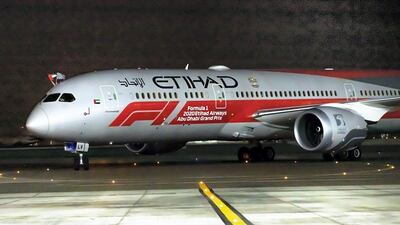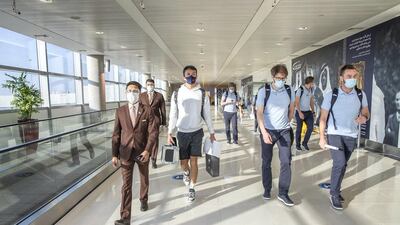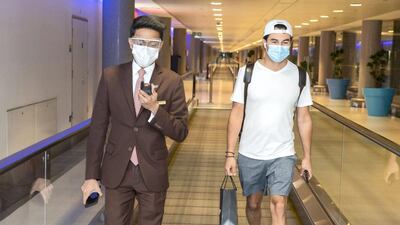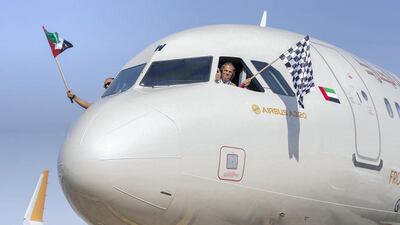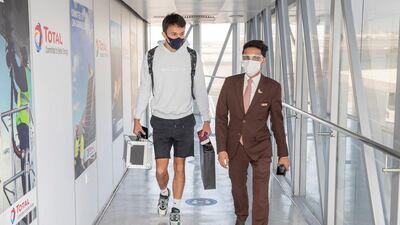The countdown to the Abu Dhabi Grand Prix has begun, and Etihad Airways, the official partner to the race, has completed transportation of the teams, drivers and crew into the UAE inside the newly set up Formula 1 biosphere.
The carrier operated 10 flights from Manama in Bahrain to the capital of the Emirates, allowing them to transfer to Yas Marina Circuit, following a series of discussions over recent weeks with F1’s travel division.
In essence, the biosphere is a series of requirements that are geared towards keeping those travelling between races free from contracting – or spreading – Covid-19. This is the first time the entire paddock community has been obliged to travel on a race-organised series of charter flights.
Everyone involved must now remain within the biosphere, as strict rules remain in place. No one will be permitted re-entry to the Yas Island track if they leave the lockdown zone. The only exceptions, which are few, are vehicles and personnel with specially arranged passes issued by the government.
Those entering Abu Dhabi for this year’s race have already had to spend at least a week under a similar lockdown in Bahrain, undergoing regular Covid-19 tests. The last of these tests would have been taken just before the travellers boarded their allotted aircraft.
The restrictions of the biosphere are some of the most stringent in world sport, with the FIA – motor racing’s global governing body – closely involved in the development of the new rules.
When the official announcement was made that the race would be taking place on December 13, Emirates News Agency Wam reported that the “the precautionary health measures in place during the F1 weekend on Yas Island prioritise the wellbeing of the F1 community while maintaining the competitive integrity of the final race of the season”.
The idea of the biosphere was mooted in May by Ross Brawn, British F1’s managing director, and discussions between the various stakeholders around the world have been extensive and ongoing for months.
Speaking on the F1 Nation podcast at the time, he talked about the potential problems ahead.
“One of the logistical challenges is getting everyone tested and cleared to enter the paddock and enter the racing environment,” Brawn said.
The most high-profile figure to be affected by the new rulings is F1 world champion Lewis Hamilton, who had to miss the penultimate round of the championship in Bahrain after contracting the coronavirus.
The Mercedes driver, who secured his record-equalling seventh title in Turkey in November, still maintains hopes of being allowed entry into Abu Dhabi for the race.
"It has been one of the hardest weeks I've had for some time," the 35-year-old Briton said in a video on social media on Tuesday.
"I've just been focusing on recovering and trying to get back in shape so I can get back in the car and race in Abu Dhabi.
"I woke up today feeling great and got my first workout in so I just wanted to send you guys a message of positivity, let you know I'm OK. I hope that I can get back in the car soon."
The decision over Hamilton's inclusion, though, remains with the Bahraini health authorities, according to FIA race director Michael Masi.
Terry Daly of the Etihad Aviation Group, said the airline’s role in the operation was “meticulously planned”.
“Etihad transported more than 1,200 guests in order to move the Formula 1 from our neighbour Bahrain to Yas Marina Circuit in Abu Dhabi," he said.
"Guests on board were looked after by our Wellness Ambassadors who are available on every Etihad flight to ensure the highest safety and wellbeing standards.”
